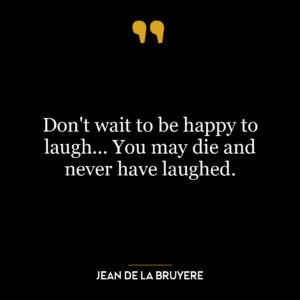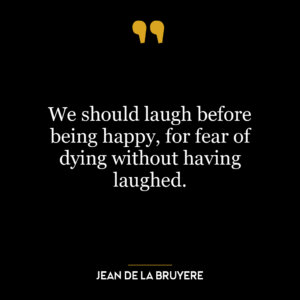This quote emphasizes the importance of self-acceptance and self-love, suggesting that true happiness stems from being satisfied with oneself rather than external possessions or achievements. It implies that no matter what you acquire or achieve in life – be it wealth, fame, or success – you won’t find genuine happiness unless you are content with who you are as a person.
The quote suggests a deep connection between self-identity and happiness. It proposes that happiness is an inside-out process, meaning it starts with the self and then extends outward. In essence, it’s a call to introspection, to look within oneself, to understand, accept, and love who we truly are.
Applying this idea in today’s world, especially in the realm of personal development, we often find ourselves in a constant race of wanting more – more money, a bigger house, a better job. We’re perpetually chasing after what we don’t have, believing that these external accomplishments will bring us happiness. However, this quote reminds us that the key to true happiness lies within ourselves.
In personal development, this could mean focusing on cultivating self-esteem, self-awareness, and self-acceptance. It could involve practices like mindfulness, meditation, or journaling that help us understand and accept ourselves better. It could also mean setting personal boundaries and prioritizing self-care, to ensure we’re treating ourselves with the love and respect we deserve.
In a broader societal context, this quote challenges the materialistic culture that equates happiness with possessions and achievements. It encourages us to shift our focus from external validation to internal fulfillment, from what we have to who we are. It’s a call to redefine success, not by what we acquire, but by how content we are with ourselves.
So, the next time we find ourselves feeling unhappy despite having everything, it might be worth remembering this quote and looking within. Because until we are happy with who we are, we will never be happy with what we have.






